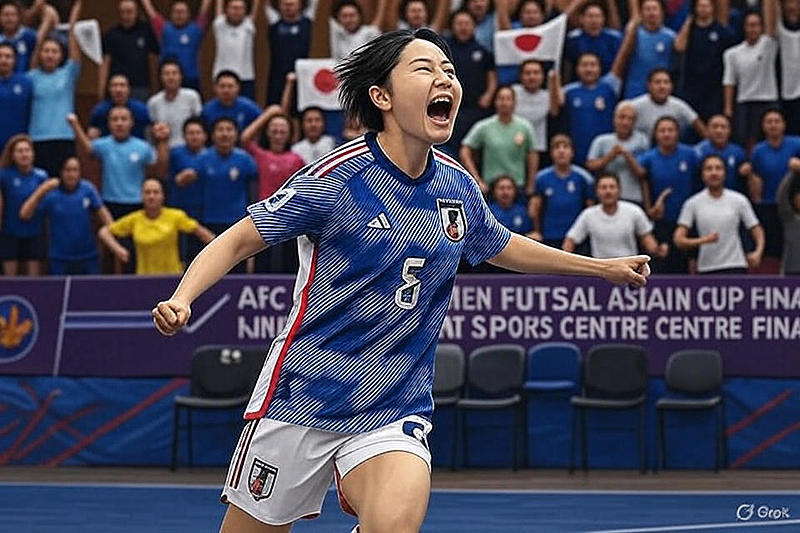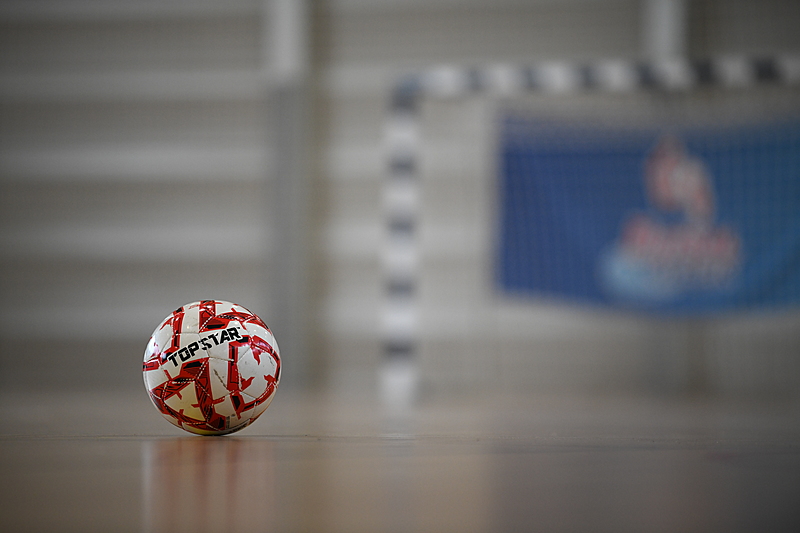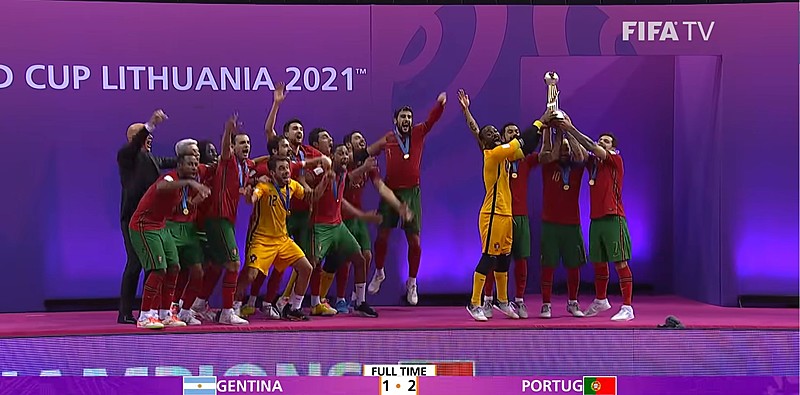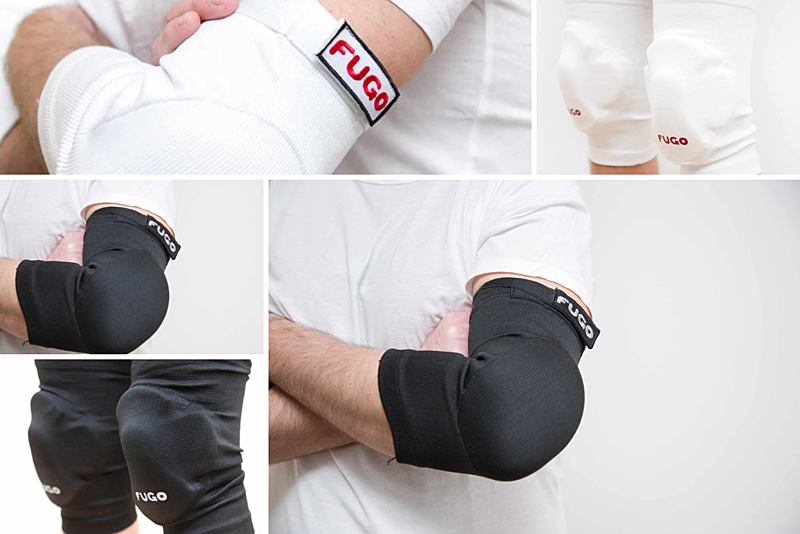This Sunday, on 11th October we will know who is the UEFA Futsal Champions League Winner for the 2019/20 season. Still an ongoing Champions League campaign started on 27th August 2019 with the Preliminary round. One year and 45 days later (and only 40 days before the new 2020/21 campaign begins) we will know the winner.
The reason for such a long season is, of course, coronavirus pandemic which disrupted even more prominent competitions such as UEFA Euro, Olympic Games and – Futsal World Cup!
Initially, 2019/20 UEFA Futsal Champions League Final Four tournament was originally scheduled to be played from 24th to 26th April 2020 at the Minsk Arena in Belarus. The tournament was postponed due to COVID-19 outbreak and on 17th June 2020, UEFA announced that the final tournament would be played from 9th to 11th October 2020 at the Palau Blaugrana in Barcelona.
Four teams, two from Spain (Barcelona and EL Pozo Murcia) and two from Russia (Tyumen and KPRF) will fight for the 34th European Championship Title.

In this text, we will take a look at the recent history of the UEFA Futsal Champions League or the UEFA Futsal Cup as this competition was known since its beginnings in 2001.
We will be talking about the rebranding of the strongest futsal club's competition which took place in 2018.
UEFA Futsal Champions League - the beginnings
Before the beginning of the UEFA Futsal Cup, best European clubs played European Futsal Club Championship, the tournament founded in 1984. It was an „unofficial“ competition since it was not played under the regulations of UEFA nor FIFA. However, it was legitimate futsal competition and clubs that won that trophy were considered and still are the European futsal champions.
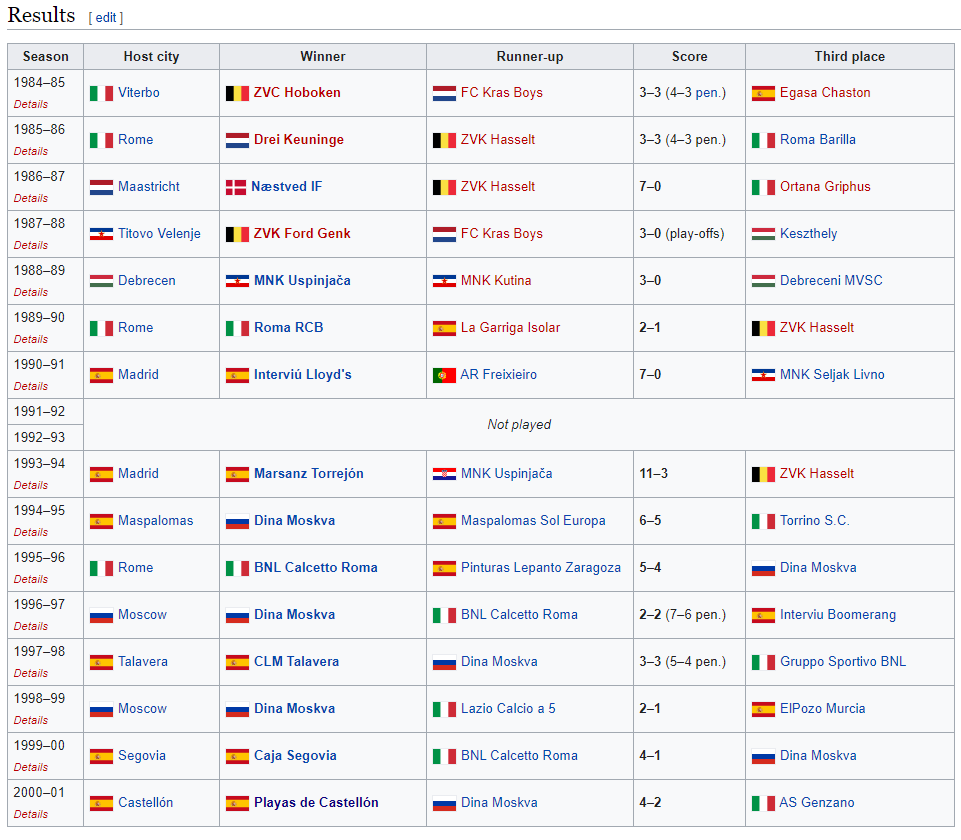
In 2001 UEFA decided to get more seriously involved in futsal. In that same year, only the third European Championship was held (Spain defeated Ukraine in finals after extra times 2:1).
In the first edition of the UEFA Futsal Cup (and 16th of the tournament of the best European teams), 24 teams were divided into the eight groups. Group winners advanced to the final stage which consisted of two groups with four teams each. The best two teams of both groups advanced to the Final Four which was played in Portugal's capital, Lisabon.
In the semi-finals, Playas de Castellón defeated host Sporting (4:0) and Belgium champion Action 21 Charleroi outplayed Split (Croatia) with 7:3. In the finals, Castellon won the initial UEFA Futsal Cup defeating Charleroi with 5:1.
Interestingly, the European champion from 2001 to 2003 Castellón is playing in Spain's second division under the name Club de Futbol Sala Biscontes Castellón and didn't play in the first tier since 2010/11 season.
The UEFA Futsal Cup was played for 17 seasons before the rebranded UEFA Champions League kicked off in 2018/19 season.
The beginnings of the new look of the Champions League actually date back to 14th September 2016. when current UEFA president Aleksander Čeferin started his presidency of the European football's umbrella organization.
Before becoming the UEFA president, between 2011 and 2016, Slovenian lawyer Čeferin was the President of Football Association of Slovenia.
But his role in the administrative part of sport started in 2005 through his work with the executive board of Slovenian futsal club FC Litija.
Čeferin never hid his love for futsal and his football roots.
Because of his influence, Slovenia got the 2018 European Futsal Championship which was one of the best organized and most-watched tournaments so far.
However, the key and revolutionary decisions for futsal development in Europe were made at the UEFA Executive Board meeting in Helsinki in April 2017.
On that meeting, UEFA decided that:
- UEFA Futsal Euro is expanding to a format with 16 national teams from 2022 and will be held every four years
- UEFA Women's Futsal Euro was introduced and will be held every two years starting in 2019 (Spain defeated Portugal in the initial finals)
- The U19 Futsal Euro was introduced and will be held every two years starting in 2019 (Spain defeated Croatia in the initial finals)
- Starting from the 2017/18 season the three strongest European nations (Spain, Portugal and Russia) will each have two representatives in the strongest club competition
- From 2018/19 the UEFA futsal Cup becomes the UEFA Futsal Champions league
Those were really revolutionary decisions. One meeting of UEFA Executive board has improved futsal in Europe more than all other meetings in the previous 30 years since futsal became an official sport.
The rebranded UEFA Futsal Champions League
As for the Champions League itself, the main format of the competition has not changed. Preliminary, Main and Elite round remained, as well as the Final Four, played as one-venue mini-tournaments.
However, there was a slight change to how those stages work.
The low-ranked teams in the UEFA Futsal Cup club coefficient ranking begin their campaign in the preliminary round, as before. But, unlike before, no teams receive byes to the elite round, and all contenders excused the preliminary round begin the competition in the Main round.
The main round was split into two separate paths, Path A (16 teams, ranked 1st to 11th and 16th to 19th in the UEFA Futsal Cup club coefficient rankings, excluding the holders) and Path B (16 teams, ranked 12th to 15th and 20th downwards).
The top three teams from the Path A groups and the top team from the Path B group proceed to the elite round.
These were minor, systematic changes. The biggest difference compared to the previous period was the visual identity of the competition.
Previously rounded blue-yellow and white logo with black letters has been replaced with the new completely black logo (there is also a variation of a white logo on a Navy Blue surface). The round futsal ball logo was replaced by a five-legged star with a small futsal court in the middle.
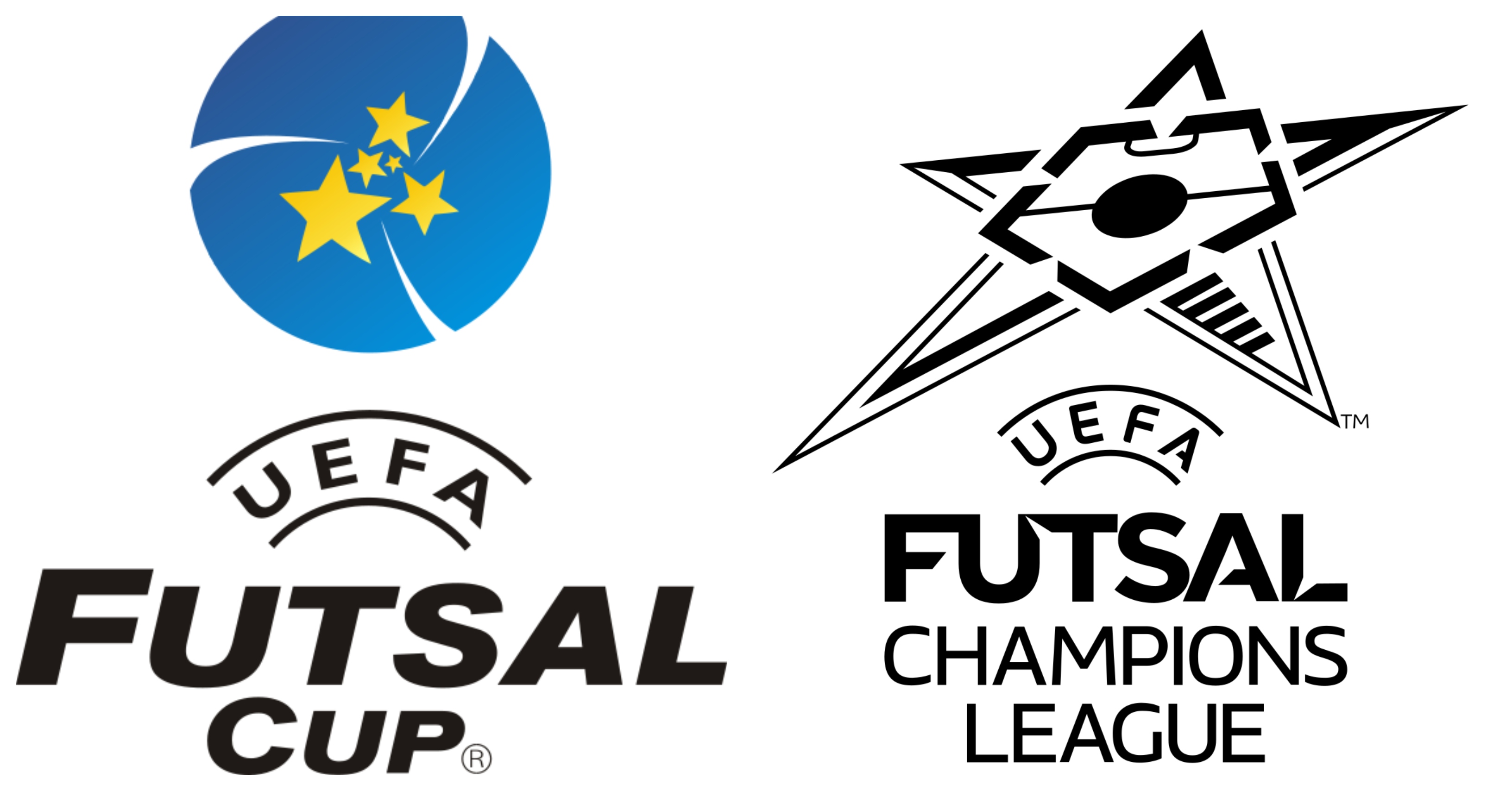
The main European club's tournament gained much in recognition and importance. It became much „brighter“ than before with a more „elite“ character. With this new and modern visual identity, the UEFA Futsal Champions league should further raise public awareness of competition in the near future.
Hopefully, the rebranding of the UEFA Champions League is just the first step before launching the Women's Champions League and the second European continental competition modelled on the Europa League in football. Both competitions would dramatically raise the popularity of futsal in Europe.
The Final Four of the second edition of the rebranded UEFA Futsal Champions League (19th that is played under the UEFA's patronage and 34th of Europe's elite club futsal tournament) you can follow thoroughly on a new, rebranded FutsalFeed.com.
More information soon… 😊


